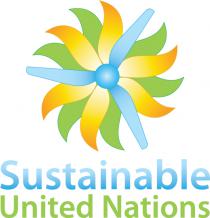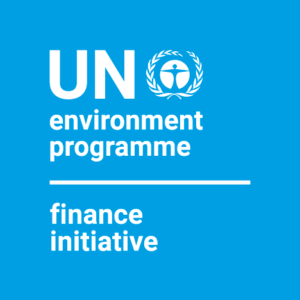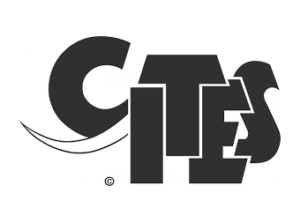Newsletter 16 Oct 2023
Environment: What’s Up in GENeva | 16 – 22 October 2023

The Geneva Environment Network’s weekly newsletter includes the latest information on the global environmental agenda, main events, job vacancies, learning opportunities, as well as other useful resources and updates. Stay tuned and follow us also on Twitter, Facebook, LinkedIn, Instagram and Youtube, or visit our website regularly for additional updates.
Image of the week | “Témoins de glace – Our alpine glaciers, sentinels of the climate” Photography Exhibition, at Parc des Bastions, from 9 October to 9 November 2023. This exhibition presents a cross-section of artists’ views on glaciers, witnesses to a planet that is warming at high speed. It is organized as part of the International Glacier Film Festival, which will take place at the Maison des Arts du Grütli, from 1 to 2 December 2023.
Preparations for CITES Standing Committee
In preparation for the Seventy-seventh meeting of the Standing Committee of the Convention on International Trade in Endangered Species of Wild Fauna and Flora (CITES SC77), which will take place in Geneva, from 6 to 10 November 2023, the Geneva Environment Network will co-host a briefing this week. SC77 will bring together Members of the Committee and other Parties to the Convention as well as observer organizations to review strategic, policy and species-specific matters affecting the implementation of the Convention. This will be the first meeting of the Standing Committee after the 19th meeting of the Conference of the Parties to CITES (CoP19), held in Panama in November 2022, and the adoption of the Kunming-Montreal Global Biodiversity Framework in December 2022. → Register and join us in person on Tuesday 17 October from 10 CEST at the International Environment House II.
Procedures for Addressing Conflicts of Interest: Lessons Learned from Existing Science-Policy Interfaces
In the framework of the preparatory events for the second session of the Ad hoc Open-Ended Working Group (OEWG 2) of the Science-Policy Panel to Contribute Further to the Sound Management of Chemicals and Waste and to Prevent Pollution, the co-conveners to the Road to OEWG 2 series will host a webinar on Procedures for Addressing Conflicts of Interest: Lessons Learned from Existing Science-Policy Interfaces. This webinar aims to take a deep dive into procedures employed under existing science-policy interfaces to address potential conflicts of interest. By inviting reflections on lessons learned from those with first-hand experience with existing procedures, this event will inform and prepare Member States and other stakeholders for the discussion on this substantive matter at the second session of the ad hoc open-ended working group in December 2023. → Register on Webex and join us online on Wednesday 18 October 2023, from 14:00 to 15:30 CEST.
Tackling Growing Water Cycle Crisis
The World Meteorological Organization launched last week the State of Global Water Resources 2022 report. The report provides an overview of water resources worldwide — highlighting the influence of climate, environmental, and societal changes — and stresses that far too little is known about the true state of the world’s freshwater resources. Considering that most disasters are water-related, a policy shift based on improved monitoring, data-sharing, cross-border collaboration, and assessments of water resources is vital for society to cope with increasing water extremes.
Among the effects of the disrupted water cycle at the heart of many weather extreme events, glaciers and ice cover retreats are increasing at alarming rates. As exemplified by the observations of the Swiss Glacier Monitoring Initiative (Glamos), one-third of this year’s mass loss occurred after 5 September. To sensibilize the public and showcase the beauty of these vanishing natural treasures, the exhibition “Temoins de Glaces | Nos Glaciers Alpins, Sentinelles du Climat” will be on display until 9 November 2023 in Parc des Bastions. → Find out more in our update on Unprecedented Rates of Mountain Glacier Melting and the Role of Geneva.
Tackling the growing global water crisis, this year’s World Food Day — celebrated each year on 16 October — is observed under the theme “Water is life, water is food. Leave no one behind“. This year’s celebration highlights how 2.4 billion people live in water-stressed countries, with the UN Secretary-General Antonio Guterres calling for international solidarity to end the global food crisis. To mark World Food Day 2023, various events will take place in Geneva.
Environmental Outcomes of the Human Right Council
The 54th session of the Human Rights Council (HRC54) concluded its five-week session on 13 October 2023, with various environment-related resolutions adopted by the Council. These include:
- L.11 | Working Group on the rights of peasants and other people working in rural areas | Bolivia (Plurinational State of), Cuba, Gambia, Kyrgyzstan, Luxembourg, South Africa
- L.13 | Mandate of the Special Rapporteur on the implications for human rights of the environmentally sound management and disposal of hazardous substances and wastes | Côte d’Ivoire (on behalf of the Group of African States)
- L.19 | Rights of Indigenous Peoples | Mexico, Guatemala
- L.27 | Right to development | Azerbaijan (on behalf of the Movement of Non-Aligned Countries)
- L.37/Rev.1 | Right to education of all girls in relation to climate change | United Kingdom, United Arab Emirates
→ Overview of key environmental issues at HRC54, side events, summaries, highlights, and further resources are available on our HRC54 and the environment-dedicated webpage.
Cutting Methane from Fossil Fuels to Achieve Global Climate Targets
The “Imperative of Cutting Methane from Fossil Fuels- An assessment of the benefits for the climate and health” report, released last week at the MENA Climate Week 2023 by the International Energy Agency (IEA) in partnership with the UNEP and the UNEP-convened Climate and Clean Air Coalition (CCAC), provides evidence of the impact of methane emissions cuts to limit global warming to 1.5 °C. While a drop in fossil fuel demand would cut methane emissions, these reductions by themselves would not occur fast enough to meet the world’s climate goals. Additional targeted actions to tackle methane emissions from fossil fuel production and use – such as by eliminating routine venting and flaring and repairing leaks – are essential to limit warming to 1.5 °C and reduce the risk of crossing irreversible climate tipping points. Rapid cuts in methane emissions from fossil fuels could avoid up to 0.1 °C in global temperature rise by 2050 and according to the 2021 Global Methane Assessment, these could prevent nearly 1 million premature deaths due to ozone exposure, 90 million tonnes of crop losses due to ozone and climate changes, and about 85 billion hours of lost labour due to extreme heat by 2050. This would generate roughly USD 260 billion in direct economic benefits through 2050. According to the report, existing technologies could already abate more than three-quarters of methane emissions from oil and gas operations and half of emissions from coal at low cost.
Happening Abroad
- World Food Forum | The flagship event of the 2023 World Food Forum will take place in Rome, Italy and online from 16 to 20 October 2023 under the theme ‘“Agrifood systems transformation accelerates climate action.” Organized into three interlinked fora — the WFF Global Youth Forum, the FAO Science and Innovation Forum, and the FAO Hand-in-Hand Investment Forum — the 2023 flagship event will leverage the power of intergenerational collaboration and creativity across policy, science, innovation, education, culture and investment.
- SBSTTA 25 and Resumed CBD COP15 Meeting | The twenty-fifth meeting of the Subsidiary Body on Scientific, Technical and Technological Advice (SBSTTA 25) will take place in Nairobi, Kenya from 17-19 October, followed by the resumed second part of the fifteenth meeting of the Conference of the Parties to the Convention on Biological Diversity (COP 15) on 19 and 20 October 2023.
What (Else) to Read Next?
- The Carpathian Convention marks its 20th anniversary with a new Biodiversity Framework and a transboundary protected wetland | UNEP | 12 October 2023
Celebrating the 20th anniversary of the Carpathian Convention, Environment Ministers and senior officials from the Carpathian countries adopted the Carpathian Biodiversity Framework, among other decisions, at their seventh Conference of the Parties (COP7), held in Belgrade, Serbia. The new framework is a comprehensive instrument supporting the implementation of the Kunming-Montreal Global Biodiversity Framework at the Carpathian level.
- Monitoring air pollution levels is key to adopting and implementing WHO’s Global Air Quality Guidelines | World Health Organization | 10 October 2023
Health impact assessment of air pollution and related interventions is the foundation for tackling air pollution efficiently, seriously and sustainably. This new report is key in supporting countries to get local data and measure air pollution exposure to protect people from the adverse impacts of dirty air. - Rotterdam Convention scientific committee successfully concludes its review of hazardous chemicals | BRS Conv | 13 October 2023
The recommendations on the listing of chemicals, together with their draft decision guidance documents, will be considered during the next meeting of the Conference of the Parties to the Rotterdam Convention (COP-12), which will be held in 2025 in Geneva. - Statement of the Geneva Water Hub on the conflict in Gaza and southern Israel | Geneva Water Hub | 12 October 2023
“Keeping water out of harm’s way will mean fewer civilian casualties, so may open the door to that dialogue. Weapons may prevail for the moment, but words will find their place.” - Indigenous Amazonians urge Brazil to declare emergency over severe drought | The Guardian | 10 October 2023
The drought and heatwave has killed masses of fish in the rivers that Indigenous people live off and the water in the muddy streams and tributaries of the Amazon river has become undrinkable, the umbrella organization Apiam that represents 63 tribes in the Amazon said on Tuesday.
→ Summaries and outcomes of the events briefings and other events organized by the Geneva Environment Network are available online
Events
See all

Body Meeting
Twentieth session of the Joint Task force on Environmental Statistics and Indicators
16 – 17 Oct 2023
Palais des Nations | Room VII
UNECE

Workshop
Global Workshop on Conjunctive Management of Surface Water and Groundwater
16 – 17 Oct 2023
Palais des Nations | Room V
Water Convention, UNECE, Estonia, Slovenia


Local
Jeu de Piste – Youth Challenge Games on Agrifood Systems Transformation
16 Oct 2023 11:00 – 17:00
Uni Mail
FAO, UNIGE, Maison de l'alimentation du territoire - MA-Terre
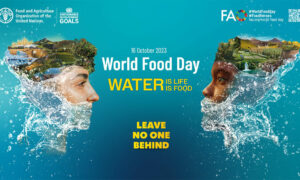
Conference
Improving Water Management through Agroecology
16 Oct 2023 14:00 – 15:30
Palais des Nations | Room H 209
FAO

Virtual
Minamata Online | Briefing for New Parties (COP-5 preparation)
16 Oct 2023 14:30 – 15:30
Online | Zoom
Minamata Convention on Mercury

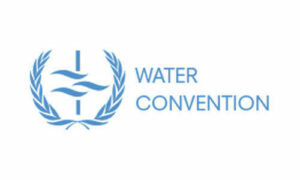
Body Meeting
Eighteenth meeting of the Working Group on Monitoring and Assessment
17 – 18 Oct 2023
Palais des Nations | Room V
Water Convention, UNECE

Conference
Briefing on the 77th meeting of the CITES Standing Committee
17 Oct 2023 10:00 – 12:00
International Environment House II
CITES, GEN

Conference
Informal Lunch Event on Trade and Biodiversity Statistics
17 Oct 2023 12:30 – 14:30
Palais des Nations | Room VII
UNCTAD

Virtual
ECCP | Exploring Bhutan’s Gross National Happiness
17 Oct 2023 13:00 – 14:00
Online | Zoom
Geneva Peacebuilding Platform

Virtual
Valorising Waste on Islands & Opportunities for a Circular Economy | IUCN Plastic Pollution Meeting Series 2023
17 Oct 2023 14:00
Online | Zoom
IUCN

Exhibition
World Food Forum 2023 Photo Exhibition Launch Event
17 Oct 2023 14:00 – 15:00
Palais des Nations | Serpent Bar
FAO

Virtual
Procedures for Addressing Conflicts of Interest: Lessons Learned from Existing Science-Policy Interfaces | Road to OEWG 2 Series
18 Oct 2023 14:00 – 15:30
Online | Webex
OEWG SPP CWP, GEN

Conference
Shifting Population Politics, from The Population Bomb to Climate Crisis
18 Oct 2023 18:15 – 19:15
Maison de la paix | Auditorium Part B
IHEID

Virtual
Where’s the Evidence? A look at existing research and opportunities for generating evidence on climate, peace, and security | Peace @COP28
19 Oct 2023 14:00 – 15:00
Geneva Peacebuilding Platform
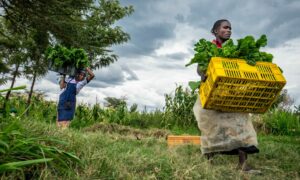
Consultation
Guide for Businesses on Human Rights Due Diligence and Environment | Geneva Consultation
19 Oct 2023 14:00 – 16:00
International Environment House II & Online | Webex
UNDP, GEN


Virtual
E-waste collection: best practices and lessons learned in Indonesia, Trinidad and Tobago and in the European region, from PACE II pilot projects
20 Oct 2023 14:00 – 15:30
Online | Webex
BRS

Jobs
See all